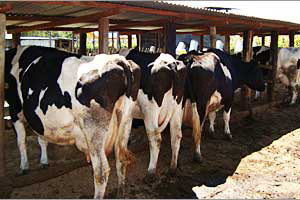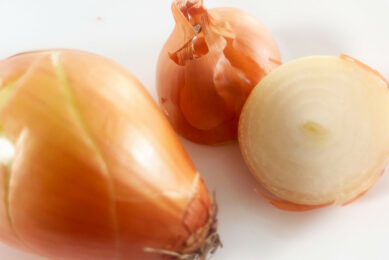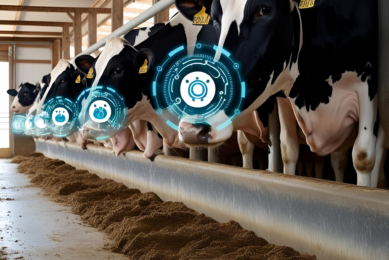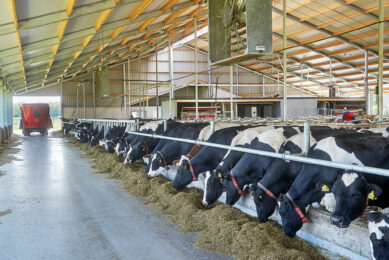Heat stress protection with yeast product

Heat stress affects dairy production, health and rumen balance and function. A yeast supplement can reduce these effects, as shown by a recent study from the University of Bologna in Italy.
Dairy farms can pay a heavy toll to thermal stress, even under moderate climate. The cow comfort zone is between 5-20°C and it is now known that even moderate heat stress can have a negative effect on the health and production of the animals.
A new study looked at the benefits of ruminant specific live yeast SC I-1077* under moderate heat stress (Average Temperature–Humidity Index=70, just below the 68 threshold). It showed that milk yield went up 6.7% (Energy Corrected Milk Yield, equiv. to an extra 1.7 Kg ECM/day).
Also the cows digestive comfort and rumen function saw improvement. Rumen pH, rumination activity and NDF (fibres) digestion had all improved after the yeast supplementation. In addition, cows spent on average a shorter time with a rumen pH below the critical value of 5.8 compared to the control group.
It also showed that more cows were spending more time ruminating, which is a good indicator of digestive comfort and welfare. It is generally well known that optimal rumination is between 400-500 min/day, sign of good rumen function. Under 400 min/day, it could be a sign of poor rumen health and probably acidosis. In the trial, the number of cows achieving optimal rumination time is increased by 35% with the live yeast. This increased rumination will induce and increased saliva production helping the animal to maintain rumen pH. Faecal fibre analysis shows an increase of NDF degradation with the live yeast (+4%), also a sign of enhanced rumen function.
All these improvements is translated into higher direct milk revenue for the producer (+0.28 Euro/cow/day). Also, reduction of heat stress benefits the animal by increased comfort, reduced acidosis and bloating risks.
*(Levucell® SC, Lallemand Animal Nutrition)











